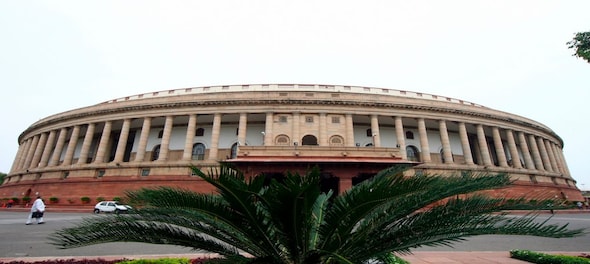
Leader of the House and Prime Minister Narendra Modi, Defence Minister Rajnath Singh and Home Minister Amit Shah were among those who took oath as members of the 17th Lok Sabha that commenced today.
The first session of the 17th Lok Sabha will conclude on July 26 and will have thirty sittings, with the passage of the Union Budget and other legislations including the Triple Talaq bill taking top priority.
In the first two days of the session, the 542 members of the lower House of the parliament will take the oath, which will be administered by
pro-tem speaker Virendra Kumar.
On June 19, the election for the Speaker of the Lok Sabha will take place. The election will be followed by a joint sitting of both Houses of the parliament on June 20, where President Ram Nath Kovind will deliver an address.
The Union Budget will be presented on July 5 by India’s first female Union Finance Minister Nirmala Sitharaman at 11 am.
PM Modi has invited the heads of all parties who have an MP either in the Lower House or the Rajya Sabha to a meeting on Wednesday to discuss the ‘one nation, one election’ policy.
Women constitute 14.8 percent of the House, the highest ever percentage of female members in the Lok Sabha. The 17th Lok Sabha has 78 women MPs, a steady improvement from the 61 women MPs in the previous Lok Sabha.
The Triple Talaq bill
The Modi government will likely push the Triple Talaq bill as part of its key legislative agenda for the 17th Lok Sabha. The previous bill lapsed because it was not passed by the Rajya Sabha, despite getting cleared by the Lok Sabha. The Modi government is expected to command a majority in the Rajya Sabha by next year, which should help the current regime to turn it into a law.
Citizenship Amendment Bill
The Citizenship Amendment Bill was passed by the 16th Lok Sabha, granting citizenship to non-Muslims from Afghanistan, Bangladesh, and Pakistan. However, the bill lapsed after it was unable to be passed by the Rajya Sabha. The Modi government remains committed to the passing of this bill, in an attempt to help Hindus and other minorities move to India from neighbouring Muslim majority countries. After the controversial bill saw an eruption of protests in the north-east, Modi assured that protection to Assamese language, culture and identity will be ensured while considering the bill again.
Bill for labour reforms
The government may also table a bill to bring about labour law reforms in a proposed amalgamation of 44 labour acts into four labour codes. These reforms are required for industrial growth and the ease of doing business in India, providing the Modi government an opportunity to boost job creation.
Other legislations on the table
Other legislations include a bill to permit the use of Aadhar numbers as identity proof and a Medical Council bill to promote transparency in governance of medical education. Additionally, a motor vehicles bill to increase the penalties for traffic rule violation will also be on the agenda.
First Published: Jun 17, 2019 5:14 PM IST
Check out our in-depth Market Coverage, Business News & get real-time Stock Market Updates on CNBC-TV18. Also, Watch our channels CNBC-TV18, CNBC Awaaz and CNBC Bajar Live on-the-go!


Droupadi Murmu, Rahul Gandhi, and more – the who’s who of politics cast their vote in phase 6 elections
May 25, 2024 12:24 PM
Lok Sabha Election 2024 | Why will Delhi witness one of the highest stakes elections
May 25, 2024 11:25 AM
Lok Sabha Election 2024: Mehbooba Mufti alleges police detention of party workers, stages protest in Anantnag
May 25, 2024 8:51 AM
Polling booth confusion for External Affairs Minister S Jaishankar
May 25, 2024 7:52 AM

